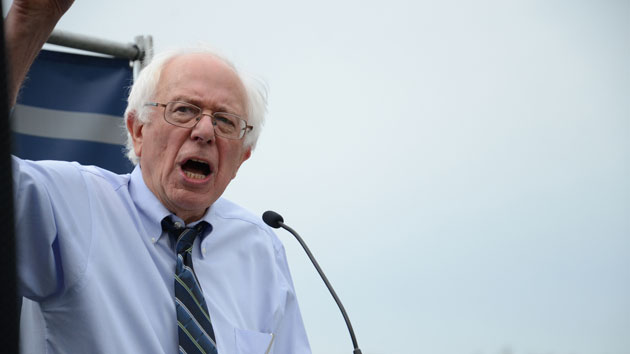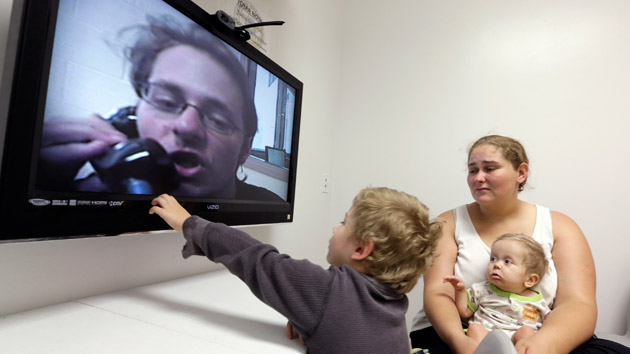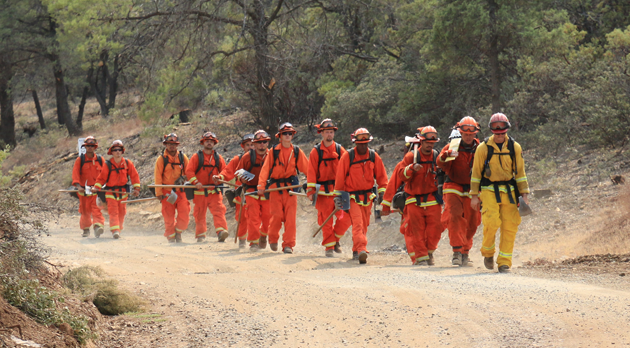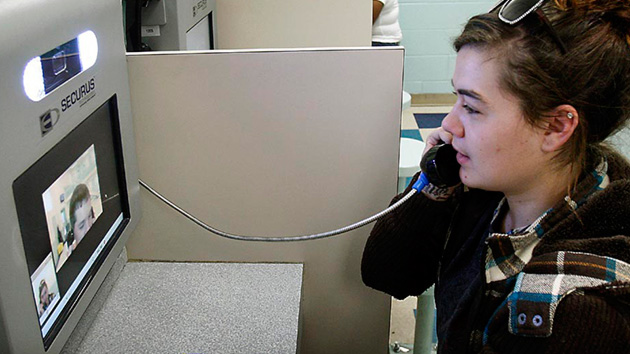
<a href="https://www.flickr.com/photos/afge/16603911783/in/photolist-rieov6-idbS6Z-rXrFy7-ri2TrY-rXrH8Q-x7QRPE-rXsRzu-rXzQFa-rVGYex-rXrCsY-rVGULR-rXsTzG-rXzMNr-ri2NAq-rXrDKs-prt9zo-xq3dqB-rXrBnG-ymeYhx-y4BNZs-ymZcW7-x7QTbA-x7QRe9-xpsdyp-9kmvAa-rXrHHC-riejJi-riejBK-seTgdu-rXsU2d-riektz-seTgBA-rXrJ4N-riek8K-scK6K3-ri2SZL-sf35a2-seZbiX-rVGXcx-rXzQkR-rVGZrc-rXrFX3-rXsR4u-rVGWkc-rVH1pV-rXsTqd-seTjWb-rXsPkQ-ri2PCf-seThUW">AFGE</a>/Flickr
Americans with a family member behind bars have to pay for a lot more than just a lawyer. Although the FCC recently capped the cost of interstate phone calls from correctional facilities at 21 cents a minute, in-state calls, which are not regulated, can cost five times more than that. And as I explained in a piece for the magazine in February, it can cost as much as a dollar a minute for a 20-minute video visit with an inmate at county jails. (By comparison, the in-person visits that video visitation software has replaced are free.)
Now, Bernie Sanders wants to change that. On Thursday, the independent senator from Vermont, who is seeking the Democratic presidential nomination, introduced a bill (co-sponsored by three progressive congressmen) designed to crack down on private contractors in public prisons. The bill’s biggest-ticket item is a prohibition on federal funding for private prisons altogether. (Currently about 1.6 million federal inmates nationally are at private facilities.)
But the bill—read it here—also takes on video and phone contractors. Specifically, it would put an unspecified cap on the per-minute cost of video and phone conferencing with inmates; it would prohibit or restrict correctional facilities from taking a cut of the revenue from phone and video conferencing fees (which can create an incentive to jack up rates, and cut back on things like in-person visitation); and it would require corrections departments to open up their facilities to multiple phone and video contractors, giving inmates and their families choices over which providers to use.
Sanders has already nudged the Democratic field to the left on economic issues like a $15 minimum wage. Maybe prison justice is next.














